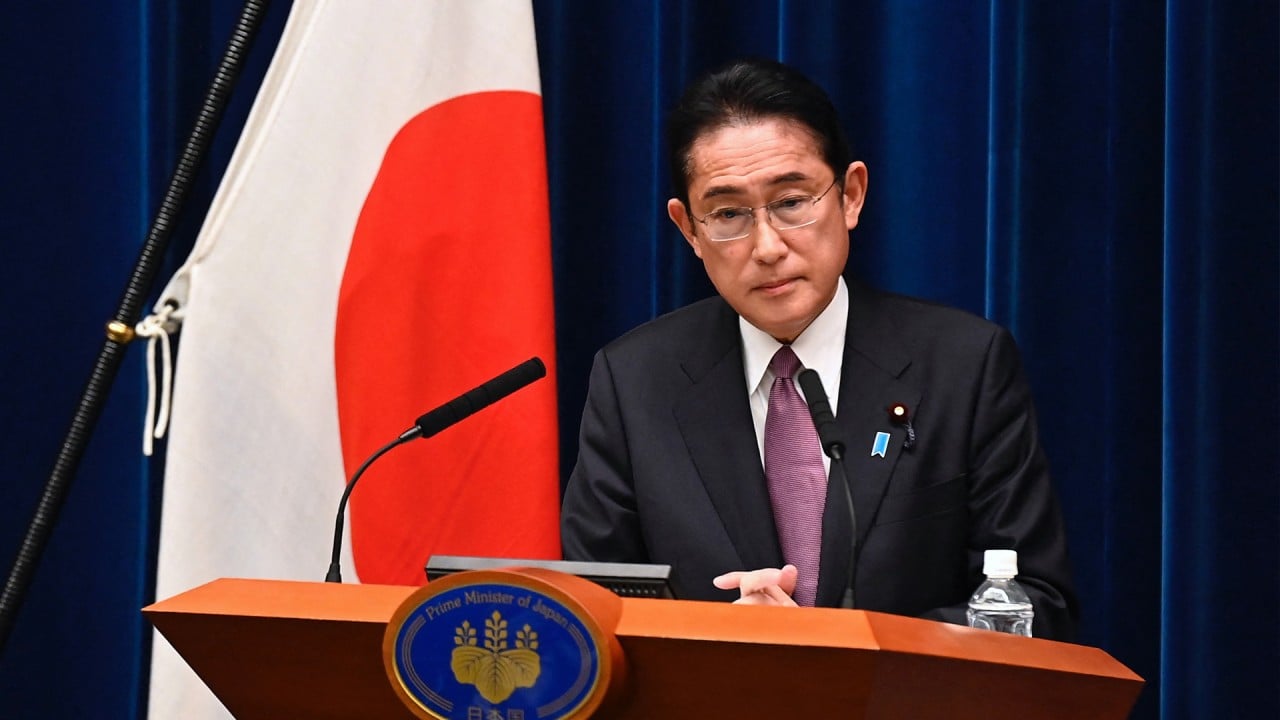
Japan’s foreign policy to be tested by China, Russia as non-permanent UN Security Council member
- Fumio Kishida is expected to use Japan’s new role on the UN Security Council, and as host of a G7 summit, to push his foreign policy agenda
- But his ambitions may be frustrated, an analyst said, in the face of resistance from regional rivals and mounting domestic political challenges
He said Tokyo would “reject attempts to change the status quo by force” and work to counter “nuclear threats”, without specifying where from, as Japan “faces the most severe security situation” since the end of World War II.

Japan took over one of the council’s 10 non-permanent seats, held for two-year terms, on January 1. It was last on the council in 2016.
“In the past, Japan was eager and willing to bring about reform of the Security Council so it could have a permanent seat, but that effort did not go well,” he said.
This will at least give Japan the ability to weigh in on the issues that are important to Kishida, such as peace and stability across the Taiwan Strait
Stephen Nagy, an associate professor of international relations at Tokyo’s International Christian University, said it was “not realistic” for Kishida to expect dramatic reform of the Security Council at this point, although a seat at the table will enable Japan to highlight some of its policy positions.
“This will at least give Japan the ability to weigh in on the issues that are important to Kishida, such as reiterating the need for peace and stability across the Taiwan Strait, a rules-based order in the Asia-Pacific region and a world without nuclear weapons,” he said.
The two leaders will talk about ways to address climate change as well as discuss security issues around North Korea, China and Russia’s invasion of Ukraine, the statement said, adding that Biden will renew his support for Japan’s presidency of the G7 and its mandate as a non-permanent member of the UN Security Council.
Nagy expects Kishida to use this year’s G7 summit in Hiroshima – his home constituency – to reiterate Japan’s commitment to achieving a world without nuclear weapons and its need to bolster conventional defence capabilities in the face of growing regional security challenges.
“It’s an opportunity to talk about Japan’s new security posture but also reiterate that Tokyo is still wedded to its ‘three non-nuclear principles’,” he said, referring to the country’s long-held commitment not to develop, deploy or permit the entry of nuclear weapons on Japanese territory.
Miyashita also added that Kishida must be mindful not to portray Japan as a victim – as China will seize on any such suggestion.
“Any claim that Japan was a victim would be seen as an attempt to whitewash history and could badly backfire on Kishida”.
Miyashita said he was pessimistic about the prime minister achieving many of his foreign policy ambitions in the year ahead, in part due to resistance from regional rivals but also as a result of fading public support at home because of soaring food and fuel prices, as well as mounting political challenges.
“He has effectively had to fire four cabinet members in a matter of weeks and as soon as the Diet reconvenes, I am sure he will come under strong criticism from the opposition parties who will demand that he justify his appointments,” he said.
“He’s going to be very busy taking care of the domestic mess that he finds himself in.”
Additional reporting by Agence France-Presse


